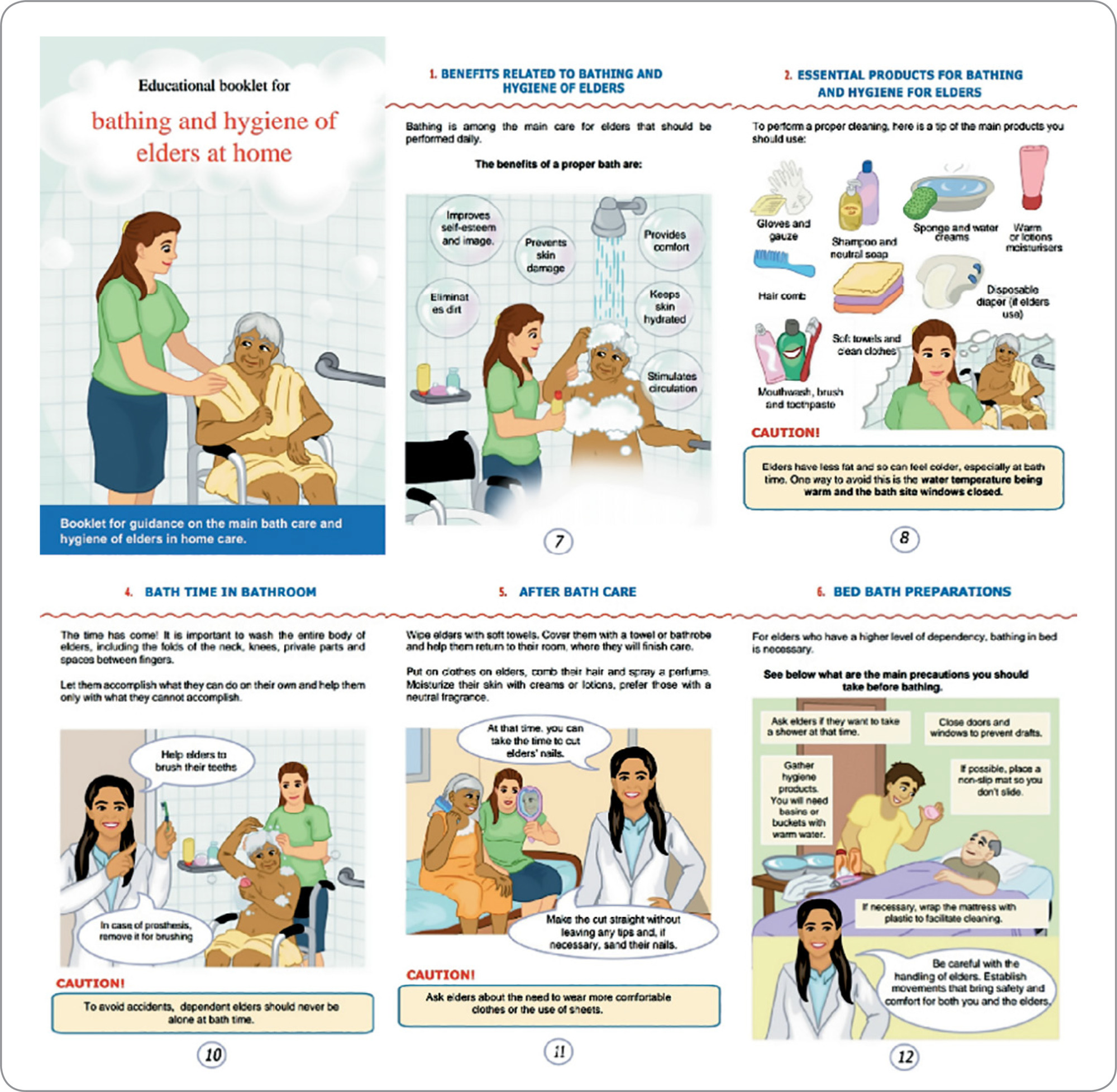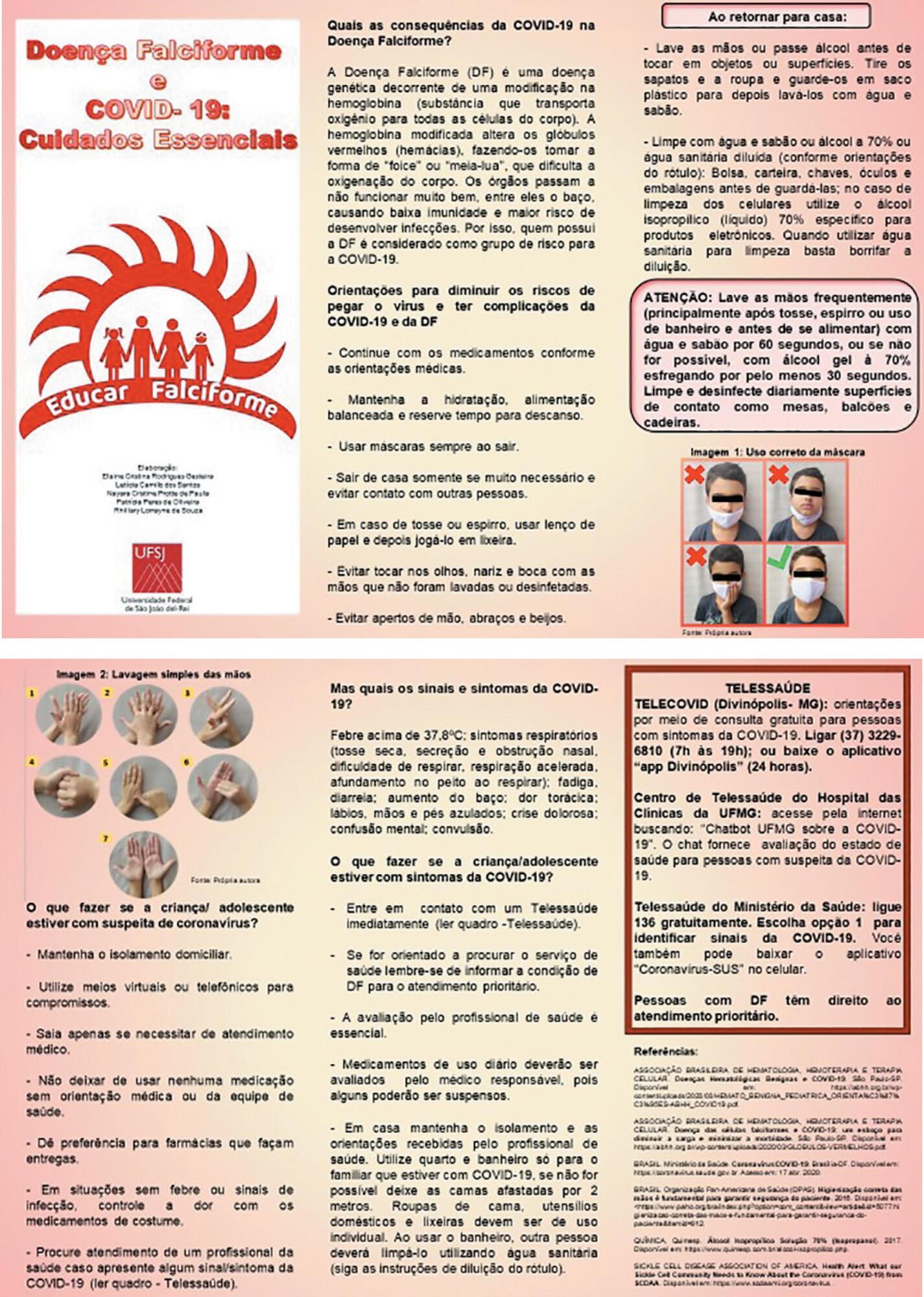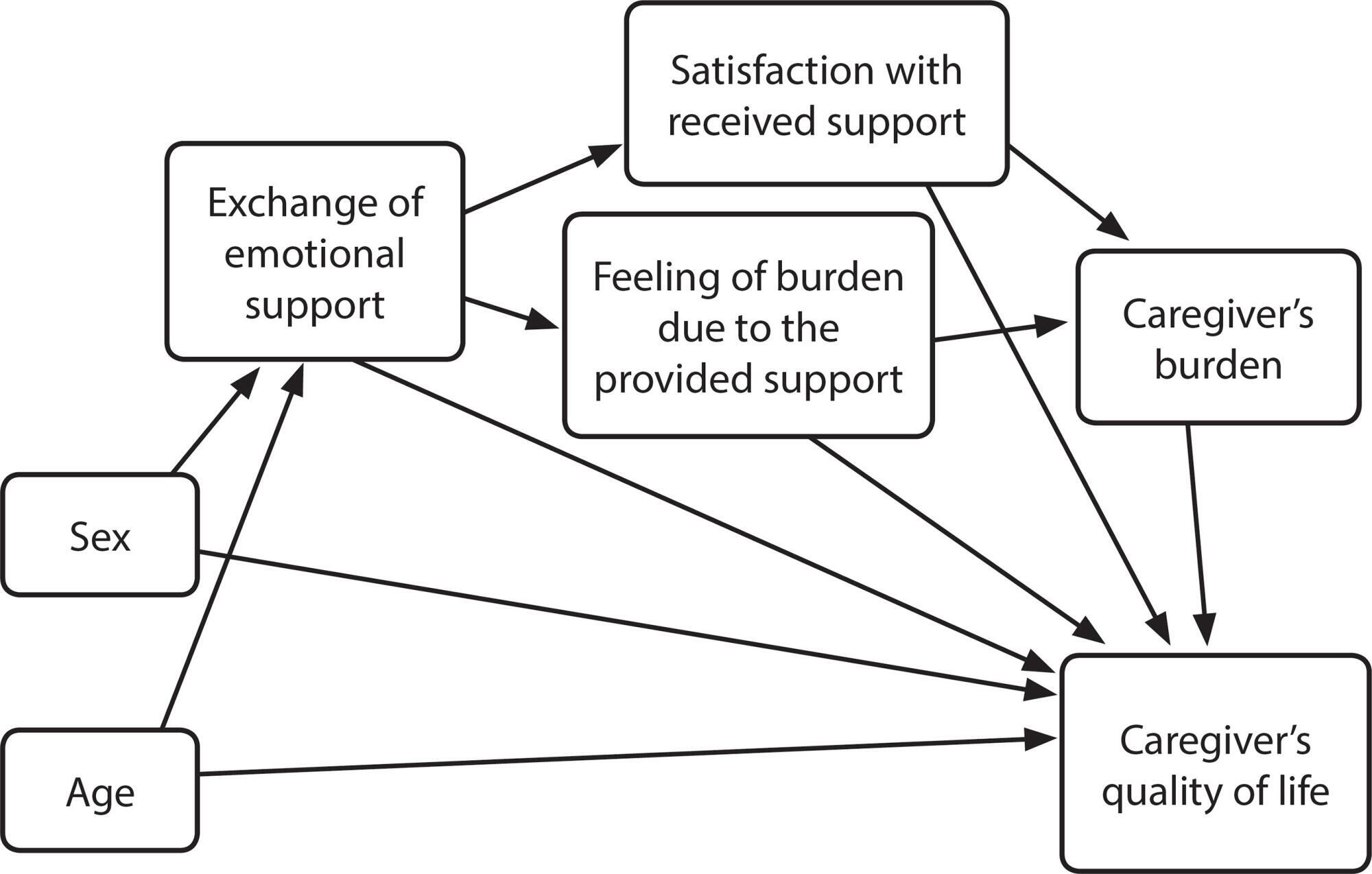-
REVIEW
Educational actions conducted during the pandemic with primary health care professionals: a scoping review
Revista Brasileira de Enfermagem. 2024;77:e20230352
08-30-2024
Abstract
REVIEWEducational actions conducted during the pandemic with primary health care professionals: a scoping review
Revista Brasileira de Enfermagem. 2024;77:e20230352
08-30-2024DOI 10.1590/0034-7167-2023-0352
Views0See moreABSTRACT
Objectives:
to map the educational actions conducted with primary health care professionals during the COVID-19 pandemic.
Methods:
a scoping review conducted in August 2023, which covered databases such as CINAHL, Medline, LILACS, IBECS, BDENF, and Web of Science. In total, 32 publications were analyzed through content analysis.
Results:
the primary beneficiaries of the educational actions included 69% physicians, 56% nurses, 25% pharmacists, 13% social workers and dentists, 9% psychologists, community health agents, and laboratory professionals, and 6% nursing technicians, nutritionists, and physical educators. The predominant educational interventions were training sessions (mentioned in 19 publications), followed by Continuing Health Education (10 publications) and Continuing Education (three publications).
Final Considerations:
the educational interventions demonstrated positive impacts on professional practice, particularly the Continuing Health Education actions, which were notable for stimulating critical problem-solving among professionals.

-
ORIGINAL ARTICLE
Patient safety culture in times of the COVID-19 pandemic: a cross-sectional study in a hospital
Revista Brasileira de Enfermagem. 2024;77:e20230187
08-30-2024
Abstract
ORIGINAL ARTICLEPatient safety culture in times of the COVID-19 pandemic: a cross-sectional study in a hospital
Revista Brasileira de Enfermagem. 2024;77:e20230187
08-30-2024DOI 10.1590/0034-7167-2023-0187
Views0See moreABSTRACT
Objectives:
to assess patient safety culture during the COVID-19 pandemic and identify the dimensions that need to be improved in hospital settings and which sector, open or closed, direct or indirect care, exhibits a higher level of safety culture.
Methods:
a descriptive and cross-sectional study. The validated version for Brazil of the Hospital Survey on Patient Safety Culture instrument was applied to assess patient safety culture. Those dimensions with 75% positive responses were considered strengthened.
Results:
all dimensions presented results lower than 75% of positive responses. Closed sectors showed a stronger safety culture compared to open ones. Indirect care sectors had a low general perception of patient safety when compared to direct care sectors.
Conclusions:
with the pandemic, points of weakness became even more evident, requiring attention and incisive interventions from the institution’s leaders.

-
ORIGINAL ARTICLE
Accessibility to prenatal care at the Street Outreach Office: nurse perceptions in northern Brazil
Revista Brasileira de Enfermagem. 2024;77:e20240090
08-30-2024
Abstract
ORIGINAL ARTICLEAccessibility to prenatal care at the Street Outreach Office: nurse perceptions in northern Brazil
Revista Brasileira de Enfermagem. 2024;77:e20240090
08-30-2024DOI 10.1590/0034-7167-2024-0090
Views0See moreABSTRACT
Objectives:
to understand nurse perspectives regarding homeless pregnant women’s accessibility to prenatal care.
Methods:
a qualitative study, with analysis based on the concept of accessibility. Semi-structured interviews were carried out with 11 nurses who work at the Street Outreach Office in northern Brazil.
Results:
nurses are faced with geographic barriers and dangerous situations in border regions, recognizing that there is a context of physical, sexual and psychological violence that involves homeless pregnant women who seek care at the Street Outreach Office. Street Outreach Office nurses’ work occurs in conjunction with other services in the Health Care Network. The implementation of educational measures is a powerful strategy, as is establishing links with women.
Final Considerations:
the Street Outreach Office’s work provides meetings with pregnant women on site in the territory, which can provide geographic and socio-organizational accessibility to prenatal care.
-
ORIGINAL ARTICLE
Factors associated with university students’ knowledge about HIV and pre- and post-exposure prophylaxis
Revista Brasileira de Enfermagem. 2024;77:e20240092
08-30-2024
Abstract
ORIGINAL ARTICLEFactors associated with university students’ knowledge about HIV and pre- and post-exposure prophylaxis
Revista Brasileira de Enfermagem. 2024;77:e20240092
08-30-2024DOI 10.1590/0034-7167-2024-0092
Views0See moreABSTRACT
Objectives:
to analyze the factors associated with university students’ knowledge about HIV and pre- and post-exposure prophylaxis.
Methods:
a cross-sectional study was conducted with 503 university students from a southern state in Brazil; data were collected using a characterization tool and a questionnaire containing 16 statements about the topic; descriptive measures and Poisson regression models with robust variance were used for analysis.
Results:
the prevalence of adequate knowledge (i.e., scoring more than 12 correct answers) was 27.83%; students older than 24 years, enrolled in health-related courses, who had not engaged in sexual relations in the last quarter, with a history of rapid HIV testing, and who knew or had heard about the prophylaxes showed a higher likelihood of scoring more than 12 correct answers.
Conclusions:
generally, the knowledge of young people about HIV and its prophylaxes was found to be inadequate and influenced by sociodemographic, educational, and behavioral factors.

-
REVIEW
Impact of financial toxicity on adults with cancer during the COVID-19 pandemic: an integrative review
Revista Brasileira de Enfermagem. 2024;77:e20240078
08-30-2024
Abstract
REVIEWImpact of financial toxicity on adults with cancer during the COVID-19 pandemic: an integrative review
Revista Brasileira de Enfermagem. 2024;77:e20240078
08-30-2024DOI 10.1590/0034-7167-2024-0078
Views0See moreABSTRACT
Objectives:
to identify the repercussions of financial toxicity on the lives of adult cancer patients during the COVID-19 pandemic.
Methods:
an integrative review was conducted using the PubMed, Web of Science, Scopus, and Embase databases, as well as the Virtual Health Library portal, in March 2023.
Results:
out of 62 studies found, 13 were included for analysis. The primary repercussions of financial toxicity included difficulties in covering basic expenses such as food, housing, medication, transportation, and internet access; increased anxiety and concerns related to health and financial situations; reduction or absence of income; challenges in obtaining treatment or accessing healthcare services; rising expenses; and telemedicine as a less burdensome alternative.
Conclusions:
the pandemic has exacerbated financial toxicity; therefore, healthcare teams must recognize it as an adverse event of oncological treatment and understand its potential to affect various aspects of patients’ lives.

-
ORIGINAL ARTICLE
Negative affectivity in university students and its relationship with academic performance and professional outlook after COVID-19
Revista Brasileira de Enfermagem. 2024;77:e20240040
08-30-2024
Abstract
ORIGINAL ARTICLENegative affectivity in university students and its relationship with academic performance and professional outlook after COVID-19
Revista Brasileira de Enfermagem. 2024;77:e20240040
08-30-2024DOI 10.1590/0034-7167-2024-0040
Views0See moreABSTRACT
Objectives:
to evaluate the prevalence of negative affectivity in university students in the post-COVID-19 pandemic context and its relationship with academic performance and professional outlook.
Methods:
a cross-sectional study was conducted with undergraduate students from a public university in Minas Gerais between September 2022 and September 2023. Data were collected using a sociodemographic and psychosocial characterization questionnaire and the Depression, Anxiety, and Stress Scale 21. The relationships between negative affectivity, academic performance, and professional outlook were verified using the Kruskal-Wallis test, with a significance level of 5%.
Results:
a total of 585 students participated in the study. A high prevalence of depression, anxiety, and stress was found among university students in the post-COVID-19 context, with a notable severity of anxiety. A negative association was detected between the investigated negative affectivity, academic performance, and professional outlook.
Conclusions:
the results indicate an emotional vulnerability in university students, with a relationship between negative affectivity and a decline in academic performance and professional outlook.
-
ORIGINAL ARTICLE
Factors associated with COVID-19 death in pregnant women hospitalized in Intensive Care Units
Revista Brasileira de Enfermagem. 2024;77(5):e20230172
08-26-2024
Abstract
ORIGINAL ARTICLEFactors associated with COVID-19 death in pregnant women hospitalized in Intensive Care Units
Revista Brasileira de Enfermagem. 2024;77(5):e20230172
08-26-2024DOI 10.1590/0034-7167-2023-0172
Views0ABSTRACT
Objectives:
to evaluate the factors associated with COVID-19 death in pregnant women hospitalized in Intensive Care Units in Brazil.
Methods:
this ecological study was conducted using secondary data from Brazilian pregnant women with COVID-19 hospitalized in Intensive Care Units between March 2020 and March 2022. Univariate analysis and logistic regression were employed.
Results:
out of 3,547 pregnant women with COVID-19 hospitalized in Intensive Care Units, 811 died (22.8%). It was found that lack of COVID-19 vaccination (OR: 2.73; 95% CI: 1.83; 4.04), dyspnea (OR: 1.73; 95% CI: 1.17; 2.56), obesity (OR: 1.51; 95% CI: 1.05; 2.17), chronic cardiovascular disease (OR: 1.65; 95% CI: 1.14; 2.38), and non-white race/color (OR: 1.29; 95% CI: 1.00; 1.66) were independently and significantly associated with death.
Conclusions:
it is concluded that vaccination status, presence of comorbidities, and clinical and ethnic-racial characteristics are associated with COVID-19 death in pregnant women hospitalized in Intensive Care Units in Brazil.
Keywords:COVID-19Intensive Care UnitMaternal MortalityPregnant WomenSevere Acute Respiratory SyndromeSee more -
ORIGINAL ARTICLE
Leadership styles and personal values of professors at a school of nursing
Revista Brasileira de Enfermagem. 2024;77(5):e20230333
08-26-2024
Abstract
ORIGINAL ARTICLELeadership styles and personal values of professors at a school of nursing
Revista Brasileira de Enfermagem. 2024;77(5):e20230333
08-26-2024DOI 10.1590/0034-7167-2023-0333
Views0See moreABSTRACT
Objectives:
to identify professors’ leadership styles and personal values.
Methods:
a quantitative, descriptive-exploratory study. Population was made up of professors in doctoral category 1 at a public university in the state of São Paulo. Data collection took place from June to August 2021. Sociodemographic characterization was extracted, and the Leadership Team Values Assessment was applied. Data were analyzed using measures of central tendency.
Results:
population included 13 professors. The level that represents authentic leadership was the most prevalent. The commitment, positive attitude and trust values stood out. The level portrayed by visionary leadership was the least identified.
Conclusions:
professors’ personal values provide a theoretical basis for guiding and analyzing professors’ leadership styles. Leadership in the educational context must be recognized and studied to promote a more comprehensive and effective approach to developing and improving educational leaders.

-
Educational technology for bathing/hygiene of elders at home: contributions to career knowledge
Revista Brasileira de Enfermagem. 2021;74:e20200890
07-05-2021
Abstract
Educational technology for bathing/hygiene of elders at home: contributions to career knowledge
Revista Brasileira de Enfermagem. 2021;74:e20200890
07-05-2021DOI 10.1590/0034-7167-2020-0890
Views0See moreABSTRACT
Objective:
to build and validate an educational booklet for bathing and hygiene of elders at home.
Methods:
a methodological study, developed through data collection in literature and situational diagnosis, booklet construction, material qualification through validation by expert judges (11 nurses) and target audience (30 caregivers). Data were analyzed descriptively. The minimum content validity index of 0.80 was considered.
Results:
in content and appearance validation, experts assigned Content Validity Index global of 0.92, while for assessment of the material’s suitability, the booklet was classified as “superior”, with an average of 90%. In the validation of caregivers, the overall Content Validity Index was 1.0.
Conclusion:
the booklet was successfully validated and can be considered in the context of health education and collaborate with an adequate and safe practice of bathing and hygiene of elders at home.

-
ORIGINAL ARTICLE
From despair to hope: copying of relatives of hospitalized children before bad news report
Revista Brasileira de Enfermagem. 2020;73:e20200340
11-16-2020
Abstract
ORIGINAL ARTICLEFrom despair to hope: copying of relatives of hospitalized children before bad news report
Revista Brasileira de Enfermagem. 2020;73:e20200340
11-16-2020DOI 10.1590/0034-7167-2020-0340
Views0See moreABSTRACT
Objective:
to understand the experiences of relatives of critically ill children before bad news report.
Method:
a phenomenological study based on Heidegger’s philosophical framework. Data collection was carried out from October 2018 to March 2019, through phenomenological interviews with 15 relatives of children hospitalized in a Pediatric Intensive Care Unit.
Results:
relatives, in their existentiality, experience the facticity thrown into unpredictable situations, regardless of their choices and are faced with feelings of shock, despair and fear before bad news. After emotional impact, especially regarding the possibility of death, relatives reveal hope as a mechanism for coping with the situation.
Final considerations:
solidarity and sensitivity by health professionals, especially nurses, are essential in understanding the existential dimension of relatives who experience such an experience, understanding the several facets of their existence and offering them opportunities to project themselves.
-
ORIGINAL ARTICLE
Functional capacity assessment of long-lived older adults from Amazonas
Revista Brasileira de Enfermagem. 2019;72:49-55
12-05-2019
Abstract
ORIGINAL ARTICLEFunctional capacity assessment of long-lived older adults from Amazonas
Revista Brasileira de Enfermagem. 2019;72:49-55
12-05-2019DOI 10.1590/0034-7167-2017-0798
Views0See moreABSTRACT
Objective:
To evaluate the functional capacity of long-lived older adults from Amazonas.
Method:
A cross-sectional epidemiological study was carried out with 116 older adults aged 80 years or older, registered in a primary health care unit in Belém, in the state of Pará, Brazil. The Functional Independence Measure (FIM) was used for functional capacity assessment and the Mini-Mental State Examination (MMSE) for cognitive screening. Univariate and bivariate analyses were carried out, in addition to the Pearson’s chi-square test.
Results:
The older adults presented modified independence in the self-care, sphincter control and locomotion dimensions, and needed supervision for mobility/transfers. In mobility, men presented complete independence. Modified independence was found in the 80-89 age group. It was observed that, the lower the education level, the worse the cognitive performance.
Conclusion:
In spite of their advanced age, long-lived older adults still present functional capacity for activities of daily living, even though they required supervision for high energy expenditure tasks, such as mobility and transfers.
-
Educational technology on COVID-19 for families of children and adolescents with sickle cell disease
Revista Brasileira de Enfermagem. 2021;74:e20201045
06-11-2021
Abstract
Educational technology on COVID-19 for families of children and adolescents with sickle cell disease
Revista Brasileira de Enfermagem. 2021;74:e20201045
06-11-2021DOI 10.1590/0034-7167-2020-1045
Views0ABSTRACT
Objective:
to construct and validate educational technology on COVID-19 and essential care for families of children/adolescents with sickle cell disease.
Methods:
this is a methodological study, in three stages: 1) elaborated educational technology, using the Doak, Doak and Root theoretical-methodological model; 2) content and appearance validation by the content validity coefficient. Delphi technique was applied in two rounds (Delphi I [12 judges]/Delphi II [11 judges]); 3) conducting a pilot test with six families.
Results:
“Sickle cell disease and COVID-19: essential care” included: consequences of COVID-19 in sickle cell disease, guidelines for reducing the risks of contracting the virus and having complications, signs and symptoms of COVID-19, guidelines in case of child/adolescent with suspicion or symptoms of COVID-19. Global content validity coefficient (Delphi II): 0.98.
Conclusion:
educational technology presented content and appearance validity for families of children/adolescents with sickle cell disease, related to COVID-19.
Keywords:Anemia, Sickle CellCoronavirus InfectionsEducational TechnologyFamily NursingValidation StudiesSee more
-
ORIGINAL ARTICLE
Self-care activities, sociodemographic variables, treatment and depressive symptoms among older adults with Diabetes Mellitus
Revista Brasileira de Enfermagem. 2019;72:22-29
12-05-2019
Abstract
ORIGINAL ARTICLESelf-care activities, sociodemographic variables, treatment and depressive symptoms among older adults with Diabetes Mellitus
Revista Brasileira de Enfermagem. 2019;72:22-29
12-05-2019DOI 10.1590/0034-7167-2017-0579
Views0See moreABSTRACT
Objective:
to analyze the association between self-care activities of older adults with Type 2 Diabetes Mellitus (DM) and sociodemographic variables, type of treatment and depressive symptoms.
Method:
inferential and cross-sectional study, with 121 older adults with Type 2 DM in ambulatory care. We used a questionnaire for characterization of sociodemographic and health, questionnaire self-care activities with DM, Mini Mental State Examination and Geriatric Depression Scale. The association of variables was used (Fisher’s exact test) and for comparing the means (Student’s t-test and analysis of variance).
Results:
The mean age was 68.1 years, the majority were women (57.2%), retired (71.9%) and married (65.3%). The highest averages were for the activities: “to dry the spaces between the toes, after washing them” and smaller averages for “exercise”.
Conclusion:
In spite of high average for self-care activities, there is a need for enhanced performance and compliance to them.
-
ORIGINAL ARTICLE
Sickness absenteeism of Primary Health Care professionals before and during the COVID-19 pandemic
Revista Brasileira de Enfermagem. 2022;75:e20220028
08-26-2022
Abstract
ORIGINAL ARTICLESickness absenteeism of Primary Health Care professionals before and during the COVID-19 pandemic
Revista Brasileira de Enfermagem. 2022;75:e20220028
08-26-2022DOI 10.1590/0034-7167-2022-0028
Views0See moreABSTRACT
Objective:
to identify the frequency of occurrence of sickness absenteeism, according to the profile of Primary Health Care (PHC) professionals, and verify if there was an impact of the pandemic on absence duration and reason.
Methods:
a cross-sectional study, from January/2019 to December/2020, with PHC professionals from a municipality in northeastern São Paulo. Descriptive statistics were performed, with frequency calculation.
Results:
of the 977 PHC professionals, 633 (64.79%) used a medical certificate to justify their absence from work in 2019, and 837 (85.67%) in 2020. The main reason for leave was diseases of the musculoskeletal system and connective tissue in the two years. The mean duration of leave was 7.33 days (SD=17.33) in 2019 and 9.88 days (SD=16.05) in 2020. Nursing assistants were the ones who took the most leave in both years.
Conclusions:
there was an impact of the pandemic on absence duration and reason.
Search
Search in:
Nuvem de Tags
Aged (144) Atenção Primária à Saúde (239) COVID-19 (104) Cuidados de Enfermagem (269) Educação em Enfermagem (151) Educação em Saúde (139) Enfermagem (930) Estudos de Validação (131) Health Education (144) Idoso (208) Mental Health (149) Nursing (987) Nursing Care (306) Patient Safety (151) Primary Health Care (284) Qualidade de Vida (104) Quality of Life (106) Saúde Mental (145) Segurança do Paciente (150) Validation Studies (108)




